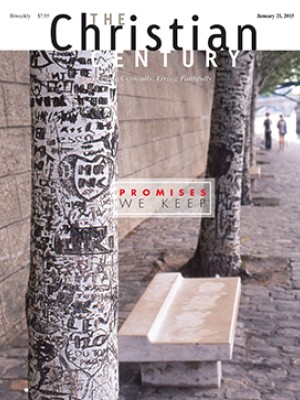A letter to Thomas Merton

Dear Father Louis,
The sun has run its course in Aquarius one hundred times since your birth on “the last day of January 1915, under the sign of the Water Bearer, in a year of a great war.” It’s been almost three-quarters of a century since you entered the Abbey of Our Lady of Gethsemani as a postulant, penitent, and convert; you enclosed yourself in its “four walls of freedom” on December 10, 1941, as the United States was entering the Second World War, a month and a half shy of your 27th birthday. You died on December 10, 1968, exactly 27 years later, after delivering a talk on “Marxism and Monastic Perspectives” at a meeting in Bangkok. Your life divides into secular and religious halves; and that is almost the only thing about you that can be neatly sorted out.
I first learned of you during my childhood on the fringe of the peace movement in New York; I remember hearing the complaints of some Catholic Worker activists when you refused to endorse draft card burning during the Vietnam War; you had a way of disconcerting even those who considered you a prophet. During my college years I discovered your books, from your classic memoir, The Seven Storey Mountain, to your reflections on Zen, Taoism, and Sufism. You convinced me that the contemplative life remains not only viable but essential. My would-be husband figured he could win me over by keeping a copy of Contemplative Prayer in his back pocket; he succeeded. By then you had become what your name anagrammatically suggests, a mentor to millions of people who never had a chance to know you face to face.
Read our latest issue or browse back issues.
But we desire to know you face to face; hence the profusion of notable biographies—among them, the mildly psychoanalytical investigation by Monica Furlong, the Michael Mott biography stuffed to the gills with everyday facts, the sympathetic studies by Lawrence Cunningham and William Shannon, Paul Elie’s group portrait linking you to your fellow American Catholic pilgrims Dorothy Day, Walker Percy, and Flannery O’Connor, the film biography by Paul Wilkes and Audrey Glynn—and the many picture books by Ed Rice, John Howard Griffin, Jim Forest, and others. How photogenic you were in your white habit and black scapular, set against the fields of grass and alfalfa, or in denim work clothes and straw hat on the porch of your hermitage, or, freed from your four walls of freedom, enjoying the company of newfound brothers, Thich Nhat Hanh and the Dalai Lama.
And how inscrutable you were, for all the self-revealing writing. You wrote a memoir worthy of comparison to Augustine’s Confessions—were it not marred by a Holden Caulfield–like contemptus mundi. You tapped into the wellsprings of monastic spirituality through scholarship and reflection on the Rule of St. Benedict, the Desert Fathers, John Cassian, Bernard of Clairvaux—and then you translated that spirituality into an idiom of authenticity and alienation that now seems dated. You restored contemplation to its rightful centrality in Christian life and did much “to reassure the modern world that in the struggle between thought and existence we [monks] are on the side of existence, not on the side of abstraction”—and then you portrayed contemplation as so radically self-emptying that it sheds much of its specific religious content. You fought for the privilege of living as a hermit on the abbey grounds—but you let your hermitage become a gathering place for your nonmonastic friends during a period when you were (as you told Rosemary Radford Ruether) “browned off with and afraid of Catholics.”
On a reductionist psychoanalytic reading, you were an orphan searching for his lost parents, a repressed lover, and a narcissist drowning in his own reflection. On a more discerning Augustinian reading, though, you were an Everyman whose heart is restless until it rests in God; and on a sound monastic reading, you were one of thousands of essentially good monks who strayed but stayed the course. I believe you did stay the course. Had it not been for the faulty electric fan, or the fault in your own heart, I believe you would have returned to Gethsemani to be a model of monastic wisdom after the storms of youth had passed.
You said that the purpose of monasticism is not survival, but prophecy. What you may not have realized—since your entry into monastic life was the high-water mark of its wartime and postwar revival—is that the survival of monasticism is prophecy, a special kind of prophecy that subdues and outlasts political passions.
The Asian Journal of Thomas Merton gives your parting words at the Bangkok meeting as “So I will disappear.” Quoted in full, however, your words are without valedictory significance: “So I will disappear, and we can all get a Coke or something.” And so you died, with your story unfinished. But we may piece together from your letters, poems, diaries, novels, tracts, and recordings of your lectures to the Gethsemani scholastics the picture of a brilliant writer, committed monk, and fragile man who searched for God with his whole heart and bids us to do the same.
Pax.






